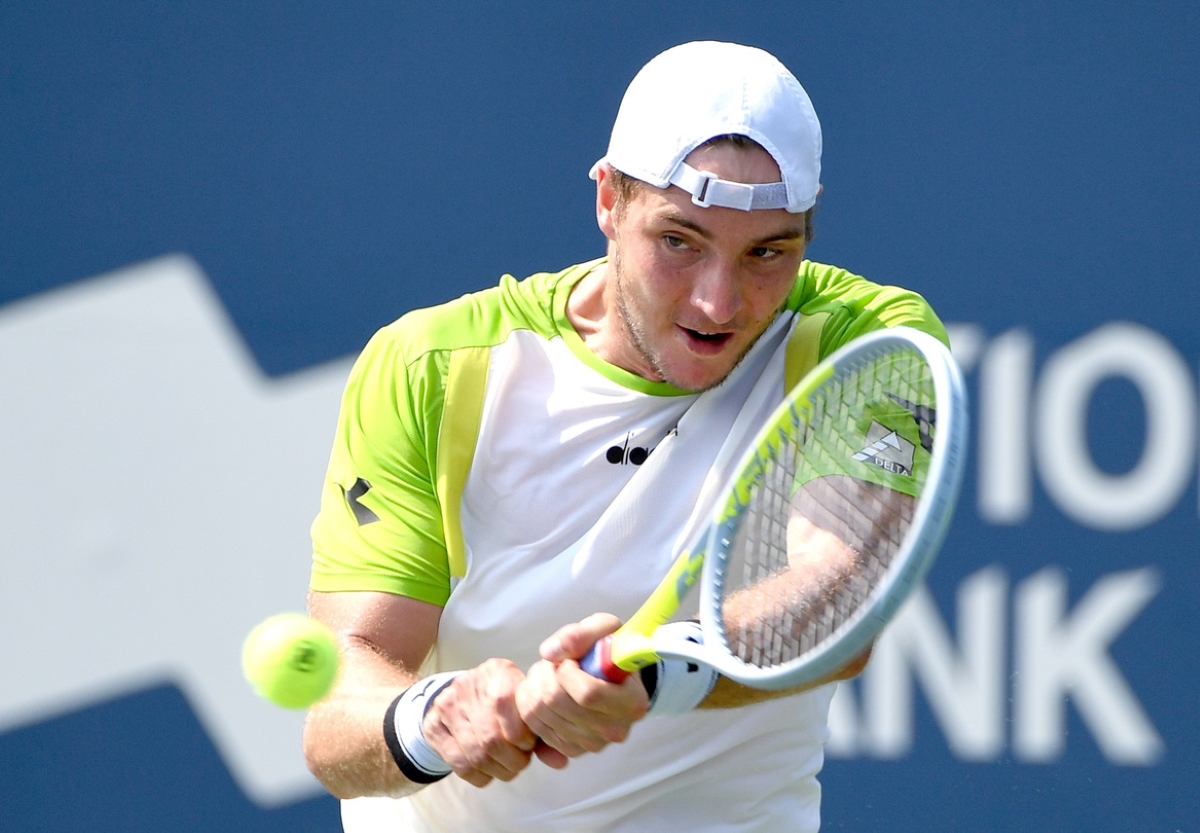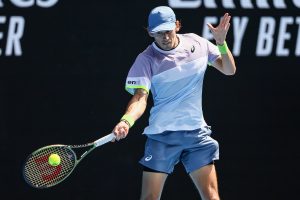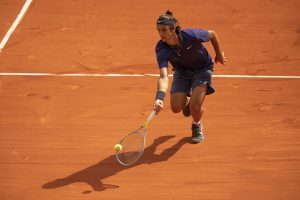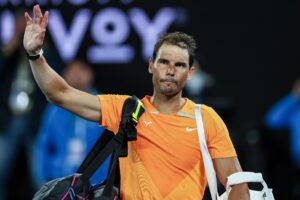On April 21, Germany’s number two male player had rather more to celebrate than his 34th birthday. Jan-Lennard Struff had, four days earlier, exorcised the ghosts of yore to become the proud possessor of a maiden ATP title. If already assured of undying affection by the Munich populace, courtesy of his run to the final in 2021 – even though they’d have been left underwhelmed by his subsequent defeat there to Basilashvili, followed by the absence in 2022 and an opening round exit to qualifier Ritschard in 2023 – the purposeful display of typically huge serving and well-timed forehands to which the Bavarian crowd was treated on that rain-soaked afternoon rendered it an “I was there” occasion.
Struff’s Maiden Triumph in Munich
Having dealt with a trio of set points for opponent Taylor Fritz at 4-5, Struff then broke and held (both to love) to claim set one, then maintained his no-sets-dropped record by taking the second 6-3. Fritz, for his part contesting a first clay final, saw his name added to a stellar list of victims across the week – including two-time defending champion Holger Rune, subject to a most magnificent obliteration (6-2, 6-0), which ended his streak of 11 straight wins at the tournament, as well as Botic van de Zandschulp, runner-up in both those years.
Whether a first foray into the Top 20 follows remains to be seen, though one can safely assume tennis fans in the Spanish capital will be keeping a close eye on the 34-year-old, following his staggering Madrid performance last year – begetting a return to the Top 30 after a five-year absence (and a galactic leap of 123 places from year-start).
A deep run by a lucky loser always attracts widespread attention. Although an ATP title being won by such a player is not unprecedented (half a dozen events have ended in this way since the millennium – once every 260 tournaments on average), no lucky loser had heretofore reached the final of a Masters 1000.
The German Rise on the ATP Tour
As if this were not remarkable enough, Struff’s compatriot Daniel Altmaier – later to remove Jannik Sinner from Roland Garros – made the quarter-finals having lost in qualifying, with qualifier Karatsev attaining a semi-final spot before losing to Struff in a bizarre “rematch” of their qualifying encounter. Among the German’s other victims in Madrid were fourth seed Tsitsipas and bona fide clay specialists Lajović and Cachin. Even if taken in isolation, these victories would be impressive; a question mark, however, could be placed against his big-game mentality by those who saw him fall to Lehečka in the opening round of Garros, his sixth successive first-round slam departure.
Indeed, one reaches a mystifying conclusion when assessing the Westphalian’s record in Challenger finals: a paltry six wins in twenty against far more limited opponents than those mentioned above (with an average peak of 61st in the rankings). Even if grit is a trait rarely lacking amongst German athletes in general, Struff’s clutch performance (quality under conditions of pressure) is grounds for valid criticism; his vast array of career disappointments includes a deciding-tie-break loss to Tiafoe in the final of the Stuttgart grass competition last June, having taken the opening set and led 4-1, then 7-6, in that breaker.
Can Struff (or others) Breakthrough in Big Tournaments?
It is approaching three decades since Germany’s last male Grand Slam champion. Boris Becker’s feast of half a dozen majors concluded with the Australian Open at the start of 1996; the subsequent 24-year famine yielded a solitary Slam finalist (Rainer Schüttler, who was lacerated by Agassi in the 2003 Australian Open final, winning just five games). Despite the skyscraping levels of talent offered by Kiefer, Haas, Mayer, Kohlschreiber, et al., only Sascha Zverev – the totemic figure of his generation of German players – has come close, as well as winning every other level of the tournament.
All German tennis fans then, should celebrate Struff’s achievement, which ensures he joins Zverev as the only other active German with an ATP title to his name. It also ensures – as if there was any doubt – that he belongs in that corner of the tennis universe reserved for “late bloomers,” those experts in deploying late-career brilliance. This curious club has its more obvious exemplars – Wawrinka and Anderson, Mannarino and the aforementioned Kohlschreiber – yet extends far beyond them to names almost forgotten: Müller (33 and 8 months at first title win), Estrella Burgos (34 and 6 months), Lorenzi (34 and 7 months). Sometimes, the day is seized by those whose yesterdays outnumber their tomorrows.
Even so, Struff is by a distance the most advanced in years of 2024’s six (so far) debut champions; only Jordan Thompson (29) comes close, with none of last year’s six newly familiar hands-on trophies older than Cachín (28). The question remains: can he progress to greater heights in the second half of the season?
Main Photo Credit: Dan Hamilton – USA TODAY Sports






